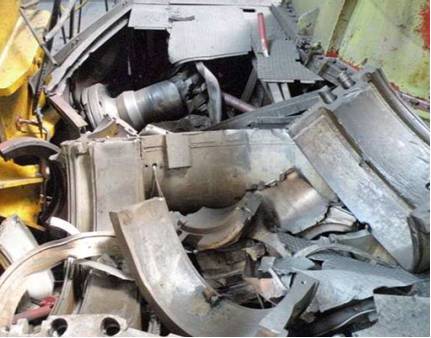
Incident Report Subject: Duvha Turbine Failure Slide Pack Date of Email report: Wed 14/03/2012 Report Detail:
Headlines from the incident in Feb 2011 Eskom's Duhva power station in Mpumalangawas extensively damaged in a major accident last month, putting heavy pressure on South Africa's already precarious power supply. The accident, on February 9, wiped 600MW of power from the national grid when one of the turbine units that was undergoing routine tests malfunctioned, causing it to fly apart and sparking a fire. In its bland and under-reported statement last month Eskom said publicly that the repair time at Duvha would be more than a year. However, a technical expert told theMail & Guardian that it would take a minimum of two years to replace the damaged equipment. The incident is likely to have a severe impact on the reliability of Eskom's operations, as the scheduled maintenance of other stations will have to be delayed to make up for the lost capacity. In addition, sources inside the industry pointed out that when the first 700MW unit of the new Medupi power station comes on stream -- expected in 2012 -- the extra capacity it was meant to add to the system would do little more than plug the gap created by the Duvha accident.
As South Africa heads into winter, a period of peak demand, the strain on ageing plants and equipment could pose a major threat to the security of the county's power supply. The government has already warned that one of the most important factors in preventing load-shedding is the health of Eskom's generator fleet. In the medium-term risk mitigation plan, published in September last year alongside the draft integrated resource plan (IRP 2010), the government warned that South Africa faced "a real risk of rolling blackouts, similar to those experienced in 2008", from 2011 through to 2016. The years 2011 and 2012, before the Medupi and, later the Kusile power plant come on stream, were expected to be particularly fraught. At the time, the government warned that Eskom would be hard pressed to sustain its fleet performance at required standards, because of "the lack of time available to undertake adequate maintenance and to improve the quality of coal supplied to certain stations". Additional Documentation: Slide Pack Relating to the Event Duvha 2011 Overspeed Testing Failure V21
|

